MA in Dance/Movement Therapy: Couple & Family Therapy
Become the Change You Wish to See in the World Through Movement
Transformative Dance/Movement Therapy: Empowering Students to Heal and Create Change
Are you ready to explore the healing power of movement and become a catalyst for social change? Our Dance/Movement Therapy program offers a low residency model that allows students to balance their professional and personal commitments while engaging deeply in their education.
This degree is offered by Antioch University’s New England Campus.
What makes our program unique?
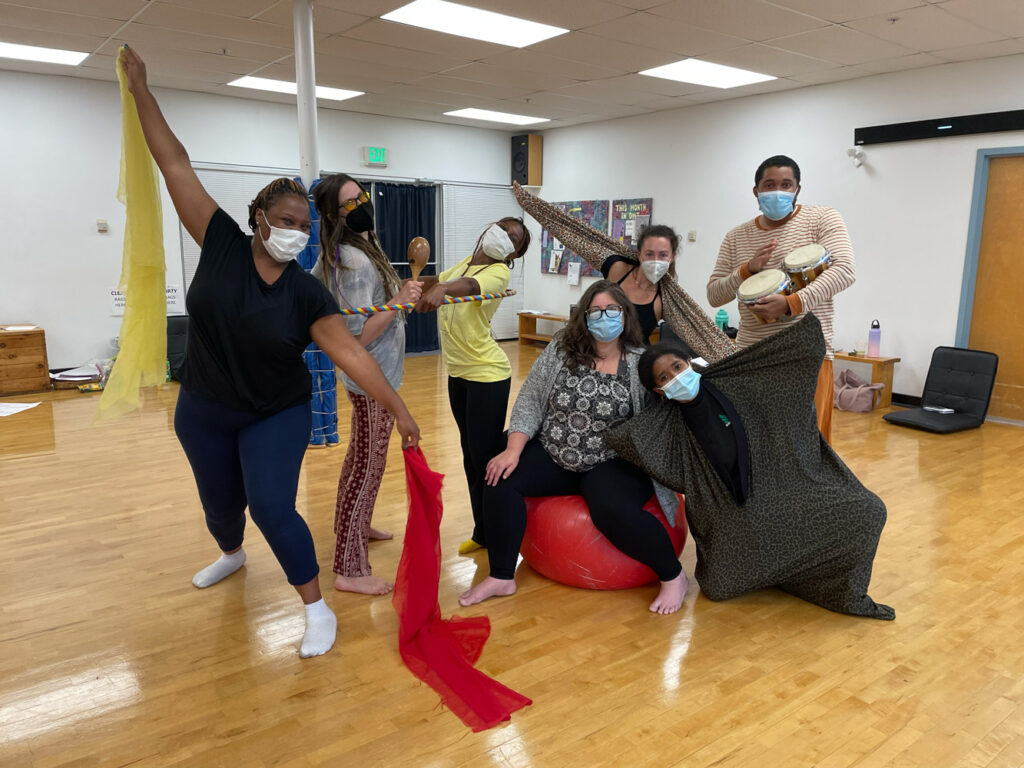
- A Deep Dive into Social Justice, Diversity, Equity, and Inclusion
Engage in nuanced learning that challenges students to think critically about the role of dance/movement therapy in a diverse world. Our curriculum is designed to equip students with the knowledge and skills to address issues of social justice, equity, and inclusion in a therapeutic context. - Honoring Tradition While Embracing Innovation
Rooted in the rich history of dance/movement therapy, our program honors the traditions that have shaped the field while staying attuned to emerging practices and evolving approaches. We ensure students are prepared to engage with the discipline's legacy and future.- Infobase & Expressive Media, Inc (Firm). (2013). To Move Is To Be Alive. In Films on Demand. Expressive Media, Inc. http://fod.infobase.com/PortalPlaylists.aspx?wID=107751&xtid=145491
- Cultural Worldview Shapes One’s Practice
You are the architect of your own therapeutic journey. We empower students to tailor their approach to reflect their unique worldview, ensuring that their practice is authentic, meaningful, and impactful. - Integrating Systems Theory for Holistic Healing
Our program embraces systems theory, recognizing that individuals are deeply interconnected with the larger social and environmental systems around them. Learn how to navigate and work within these systems to foster healing, transformation, and lasting change within communities and organizations.
Join us today to begin your journey toward becoming a compassionate, culturally attuned, and systemically conscious dance/movement therapist.
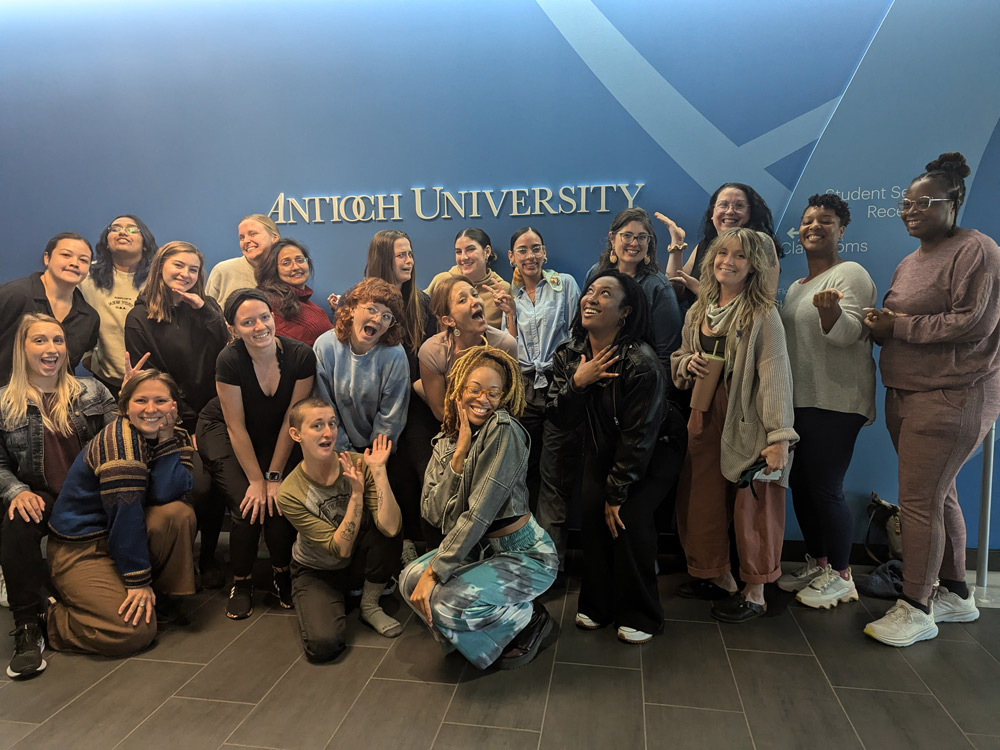
Program Overview
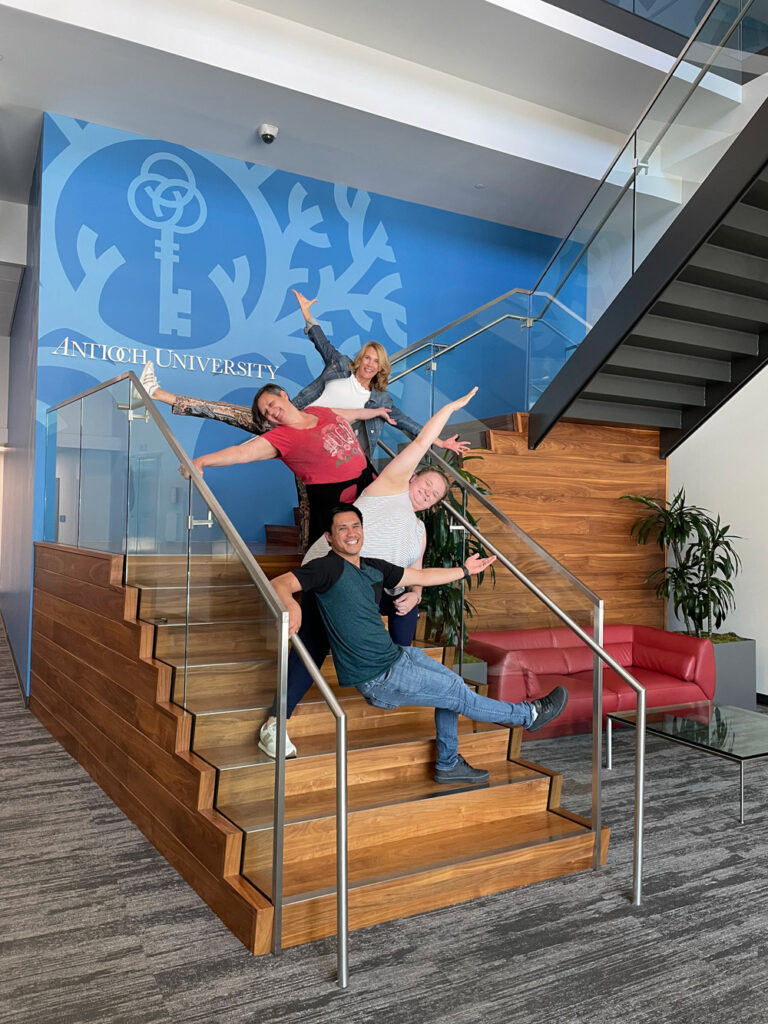
The master’s program in Dance/Movement Therapy at Antioch University New England (AUNE) was one of the first to be approved by the American Dance Therapy Association (ADTA). Students become Registered Dance/Movement Therapists (R-DMT) upon completion of the master’s degree requirements. Antioch’s MA in Dance Movement Therapy with a concentration in Couple and Family Therapy program also meets education requirements in many states for licensure as a Marriage and Family Therapist* (*Check with your state licensure board for verification).
This 63-66 credit coursework and clinical training program spans three (3) years in a low-residency format.
Year One:
2 DMT in-person residencies (June & Sept) and continue courses online
CFT courses are online, with some synchronous classes held throughout the semester on Wednesday and/or Thursday evenings from 7-9 ET
Year Two:
2 DMT in-person residencies (June & Sept) and continue courses online
CFT Internship (300-500 direct hours supervised by an AAMFT-approved supervisor)
Year Three:
DMT Internship (700 hours, 6-9 months) anywhere in the US where there is an American Dance Therapy Association (BC-DMT) supervisor; 1 in-person residency in June. An accompanying online group internship seminar provides additional support.
Total Credits 63
1st year
DMT virtual practica opportunities in the Fall and Spring semesters to co-lead and lead online DMT groups.
2nd- year
American Association for Marriage and Family Therapy (AAMFT) supervised 300 direct hours of Couple and Family Therapy (CFT) clinical internship in your local communities near your home or at the Antioch University Couple and Family Therapy Institute in Keene, New Hampshire.
3rd-year
Board-certified DMT (BC-DMT) supervised clinical and/or prevention and wellness 700-hour (350 direct hours) internship anywhere in your local communities.
Credentials and Licensure
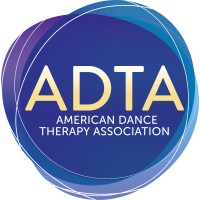
Graduates of the Dance/Movement Therapy: Marriage & Family Therapy program at AUNE are eligible to become registered with the American Dance Therapy Association for the R-DMT (Registered Dance/Movement Therapist) credential. After completing further requirements, including two years of work as a DMT, Registered Dance/Movement Therapists are eligible to apply for the BC-DMT (Board Certified Dance/Movement Therapist) credential. For information on how to access requirements for Dance/Movement Therapy credentialing, contact The American Dance Therapy Association at www.ADTA.org.
Licensure Information
This program is designed to lead to state licensure in most states.
Faculty Spotlights
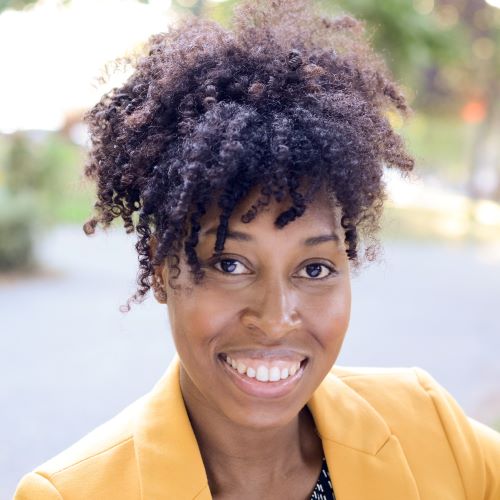
Chevon Stewart, LCSW, BC-DMT
Teaching Faculty
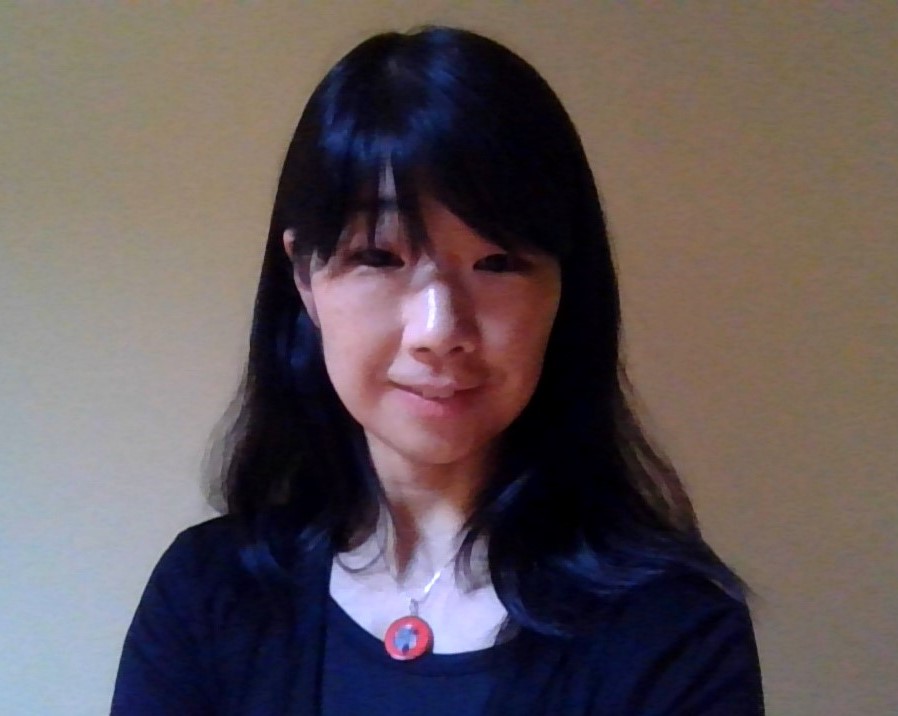
Tomoyo Kawano, PhD
Program Director
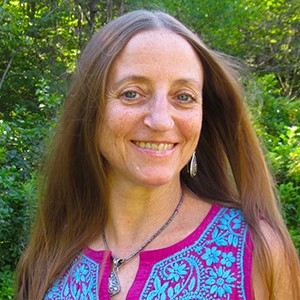
Kimberley Burden, MA
Affiliate Faculty,
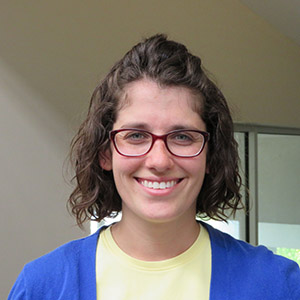
Kara Serasis, MA
Adjunct Faculty
Admissions
How to Apply
- Complete the online admissions application, including the following:
- Essay questions, admissions, and program-specific
- Resume/curriculum vitae (CV)
- Non-refundable $50 application fee
- Submit official transcripts from all colleges or universities where you earned a degree or certificate.
- email transcripts to [email protected], or
- mail to: Office of Admissions Antioch University New England 40 Avon Street Keene NH 03431-3516
- Two letters of recommendation are required from people who are in a position to evaluate your professional or academic work. The person making the recommendation may not be related to you.
- There are additional requirements for International applicants and applicants without a Bachelor's degree
- Virtual interview with a faculty member of the department to which you seek entry if selected.
- Master’s and Certificate Programs do not require the GRE or any other standardized test for admissions. We consider all of your application materials and evaluate your academic potential in a variety of ways.
Official transcripts should be emailed to [email protected] or mailed to: Office of Admissions Antioch University New England 40 Avon Street Keene, New Hampshire 03431-3516 All application materials submitted become part of an applicant’s file and cannot be returned.
Admissions Prerequisites
In accordance with the ADTA (American Dance Therapy Association) admissions standards,
- We look for candidates with an undergraduate degree in diverse backgrounds such as liberal arts, dance, psychology, biology, engineering, etc. (A degree in psychology and/or dance is not required.)
- Significant experience in at least two different dance/movement forms (such as ballet, modern, jazz, improvisation, popular/street/indigenous, liturgical, ballroom, traditional/ethnic/folk, African, Caribbean, Korean, Latin, Middle Eastern, Native American, Tai-chi, Aikido, etc.) and in-depth knowledge of one of them is required.
- Teaching, performing, and/or choreography experience is preferred.
- College-level psychology courses are recommended.
Admission Deadlines
| Program | Term | Deadline |
|---|---|---|
| MA in Dance & Movement Therapy (Low-Res/Online) | Summer | April 1 |
| Certificate in Dance & Movement Therapy | Summer | April 1 |
Tuition & Financial Aid
A college education is an investment in your future. Let us help you understand the costs and explore the resources available to help make your college education even more affordable. The majority of AUNE students finance their education through some form of financial aid. You may not be sure which federal, state, public, and private aid packages – such as loans, scholarships, and grants—are right for you. Our staff is here to help you, so you can focus on what’s most important: beginning your academic program at AUNE.
Cost
| Degree | Tuition Cost per Credit | Total Program Credits |
|---|---|---|
| MA in Dance/Movement Therapy: Couple & Family Therapy | $1,168 | 63 |
| Dance Movement Therapy, Post Masters’ Respecialization Certificate | $840 | 29 |
| View the Cost of Attendance Components | ||
Alternate Route Training Options
As research and understanding of the benefits of embodied and artistic approaches grow in our culture, DMT is increasingly sought by clients in individual, couple, and group therapy treatment to complement verbal approaches. Dance/movement therapists engage in a variety of clinical, community, and educational settings to support clients with depression, trauma, anxiety, relationship concerns, social/emotional development, eating disorders, dementia, and medical conditions.
Low Residency Dance/Movement Therapy Certificate (Keene) Individuals with a master’s degree in education or mental health (Social Work, Marriage and Family Therapy, Clinical Psychology, etc.) or those enrolled in a master's degree can complete a 3-year certificate to fulfill the majority of requirements to become a registered dance/movement therapist via alternate route training. Students take DMT-specific courses during one-week residencies in June and September and continue online over the year. The instructors incorporate hands-on clinical experience to complement experiential classroom sessions, providing cutting-edge information on the discipline of DMT as a body-mind-spirit approach to healing. Supervision resources for the 700 hours of ADTA required internship are embedded in the certificate.

Start your Antioch Journey
Take your next step - talk to our admissions team to find the right program for you.
